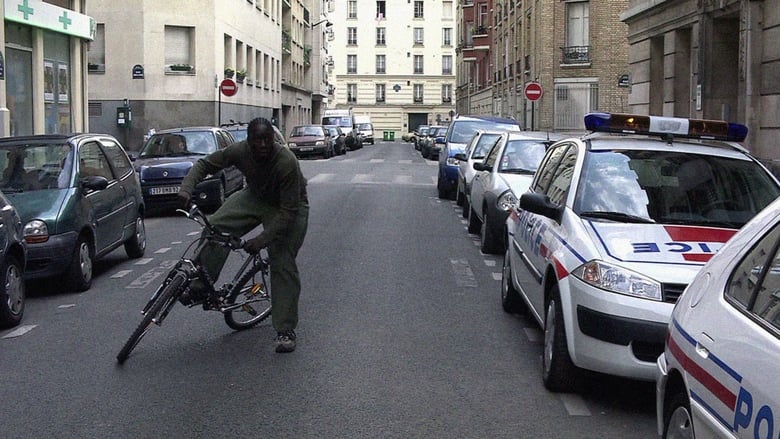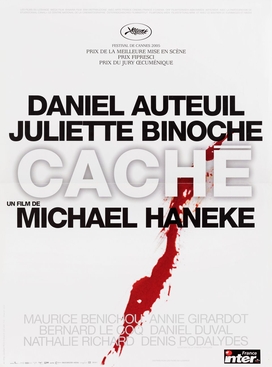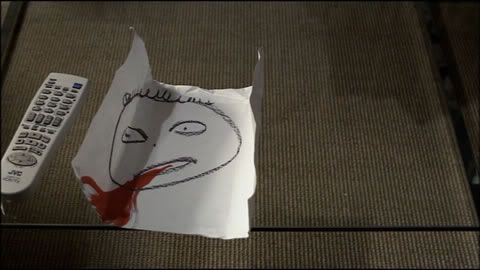← Back to Reviews

in
2005: Hidden

Well, I'm getting this show back on the road, and picking up where I left off with 2005. Admittedly, this isn't a very good year for film, and I can honestly say that no film released in this year is a masterpiece (although my choice comes sort of close). My runner-up for this year is Steven Spielberg's Munich. It's a slow-moving historical document, which tries a bit too hard to achieve the depth, but it does succeed in the end, and the style and suspense are perfectly built and sustained throughout. I also love David Cronenburg's A History Of Violence which is an extremely engaging and well acted (Viggo Mortensen is f--king superb) drama. And while I'm not a big fan of Ron Howard's work, Cinderella Man is a nice film, with honest and engaging performances. I also really like King Kong, Batman Begins, Sin City, Star Wars Episode III: Revenge Of The Sith, Walk The Line, The Constant Gardener & Crash . I couldn't even finish Syriana, it bored me to death.
But out of all these films, which I've watched multiple times, I went with Michael Haneke's Hidden, which I've watched twice ever.
Hidden opens with opening credits, displayed over a lingering shot of a quiet French residence. After the credits finish, the camera pulls back to reveal that it's a tape, being watched by Georges and Anne Laurent, the residents of the home being taped. They are initially disturbed, only mildly though, but the unmarked videos begin to pile up, accompanied by crude crayon drawings. The film then begins to delve into the connection between the tapes and Georges childhood.

Haneke's Hidden isn't an easy film to digest. It's meandering pace and minimal plot direction make a bit hard-going at times. Haneke's approach to the certain themes conveyed (voyeurism, objective guilt, childhood trauma) though, makes it worth the watch alone. It's approached with certain honesty and intrigue, but while also mounting the tension on at every turn, but not in "something is going to happen" way, but in a "will something happen" kind of way. This is most apparent in a specific scene where Georges confronts a man who almost collided with him (the man was on his bike). He almost verbally assaults him, and the man is obviously getting frustrated. But it's not acted upon. It's a single incident, with no repercussions whatsoever, and it may seem superfluous, but it's all added to the tense and realistic vibe.
And at some points, there are pay-offs. (Spoilers) The scene where the man Georges confronts about the videotapes kills himself, it's so unexpected and shocking and it's a very effective advancement of the plot. I may be babbling now, but the feeling of shock and awe this film created with me is too much for words (although that feeling isn't revisited in the second viewing). I also very much love the technical aspects of this movie, especially the camerawork used throughout. The darkness and shadows used in the flashback sequences, which are of Georges' childhood and the light and slick coloring of the present day sequences, just flow throughout and something very nice to look at. I also like the element of minimal music, which, again adds to the realistic experience. And as expected, Daniel Auteil and Juliette Binoche are solid in their roles.
A few years ago, when I first saw this wonderful film, I wouldve given it a full rating of 5/5. But a repeat viewing brought forward the slow pacing and the lesser value of the ending. But, honestly, I can't completely disregard it, and it wouldn't feel right NOT to rate as the best film of the year. It's an art house crowd pleaser. Effective work from Michael Haneke.
+

Well, I'm getting this show back on the road, and picking up where I left off with 2005. Admittedly, this isn't a very good year for film, and I can honestly say that no film released in this year is a masterpiece (although my choice comes sort of close). My runner-up for this year is Steven Spielberg's Munich. It's a slow-moving historical document, which tries a bit too hard to achieve the depth, but it does succeed in the end, and the style and suspense are perfectly built and sustained throughout. I also love David Cronenburg's A History Of Violence which is an extremely engaging and well acted (Viggo Mortensen is f--king superb) drama. And while I'm not a big fan of Ron Howard's work, Cinderella Man is a nice film, with honest and engaging performances. I also really like King Kong, Batman Begins, Sin City, Star Wars Episode III: Revenge Of The Sith, Walk The Line, The Constant Gardener & Crash . I couldn't even finish Syriana, it bored me to death.
But out of all these films, which I've watched multiple times, I went with Michael Haneke's Hidden, which I've watched twice ever.
Hidden opens with opening credits, displayed over a lingering shot of a quiet French residence. After the credits finish, the camera pulls back to reveal that it's a tape, being watched by Georges and Anne Laurent, the residents of the home being taped. They are initially disturbed, only mildly though, but the unmarked videos begin to pile up, accompanied by crude crayon drawings. The film then begins to delve into the connection between the tapes and Georges childhood.

Haneke's Hidden isn't an easy film to digest. It's meandering pace and minimal plot direction make a bit hard-going at times. Haneke's approach to the certain themes conveyed (voyeurism, objective guilt, childhood trauma) though, makes it worth the watch alone. It's approached with certain honesty and intrigue, but while also mounting the tension on at every turn, but not in "something is going to happen" way, but in a "will something happen" kind of way. This is most apparent in a specific scene where Georges confronts a man who almost collided with him (the man was on his bike). He almost verbally assaults him, and the man is obviously getting frustrated. But it's not acted upon. It's a single incident, with no repercussions whatsoever, and it may seem superfluous, but it's all added to the tense and realistic vibe.
And at some points, there are pay-offs. (Spoilers) The scene where the man Georges confronts about the videotapes kills himself, it's so unexpected and shocking and it's a very effective advancement of the plot. I may be babbling now, but the feeling of shock and awe this film created with me is too much for words (although that feeling isn't revisited in the second viewing). I also very much love the technical aspects of this movie, especially the camerawork used throughout. The darkness and shadows used in the flashback sequences, which are of Georges' childhood and the light and slick coloring of the present day sequences, just flow throughout and something very nice to look at. I also like the element of minimal music, which, again adds to the realistic experience. And as expected, Daniel Auteil and Juliette Binoche are solid in their roles.
A few years ago, when I first saw this wonderful film, I wouldve given it a full rating of 5/5. But a repeat viewing brought forward the slow pacing and the lesser value of the ending. But, honestly, I can't completely disregard it, and it wouldn't feel right NOT to rate as the best film of the year. It's an art house crowd pleaser. Effective work from Michael Haneke.
+
